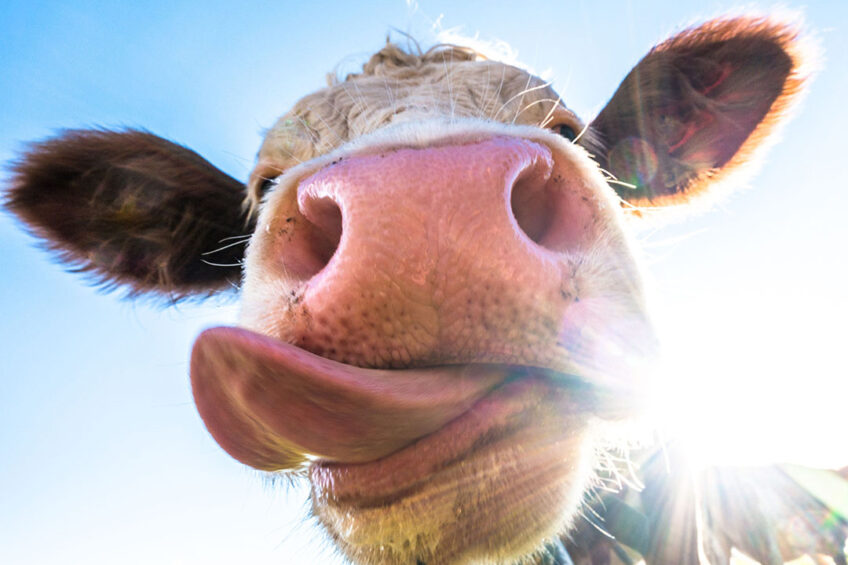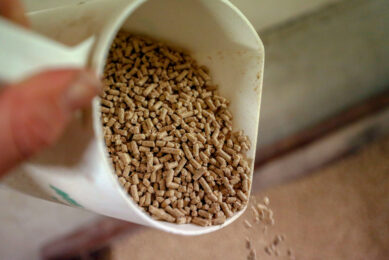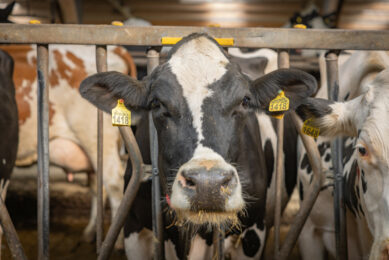Immunomodulatory additive to mitigate stress in dairy

Dairy cattle are exposed to a variety of stress factors. A study shows that supplementation with an immunomodulatory additive can mitigate stress in dairy.
Dairy cattle in intensive production systems experience multiple stressors during their life such as overstocking, group changes, high environmental temperature, and feeding issues which negatively affect health, welfare and (re)productive performance. In addition, acute and chronic stress disrupts homeostasis, alters biological functions, impacts metabolism, leads to immunosuppression, and predisposes dairy cattle to greater incidences of disease during a pathogen challenge.
Heat stress in summer and nutritional stress due to subacute ruminal acidosis syndrome in lactation cycle are 2 important issues influencing dairy cattle health and productivity. Supplementing an immunomodulatory feed additive to support dairy cattle health is an efficient method to improve the immune response during expected or unexpected stressful events. OmniGen-AF (Phibro Animal Health Corporation, Teaneck, NJ, USA), is a commercial product available for use in the dairy industry with supportive impacts on innate immunity activity after 4 weeks of feeding. This article will discuss stressors such as subacute ruminal acidosis syndrome and heat stress in dairy cows and the application this feed additive in cow feed to mitigate the stress response.
This commercial product containing selectively sourced ingredients such as yeast components (mannans and glucans), vitamins and all-natural aluminosilicates improves immune function of dairy cows through the gastro-intestinal tract, benefits rumen fermentation, reduces inflammation during pathogenic, physiological, and immunological challenges, and results in fewer infections and metabolic diseases.
What is subacute ruminal acidosis syndrome?
Subacute ruminal acidosis syndrome is caused by feeding excessive amounts of non-structural carbohydrates and highly fermentable forages and insufficient dietary coarse fibre. The incidence of subacute ruminal acidosis syndrome is 19-26% in early and mid-lactation dairy cows. Subacute ruminal acidosis syndrome leads to accumulation of volatile fatty acids, low rumen pH, insufficient rumen buffering, and failure in the selective rumen epithelium barrier function, which in turn cause the luminal immunogens, toxins, and pathogens translocate into the systemic circulation. Furthermore, feed intake reduction, reduced fibre digestion, milk fat depression, diarrhoea, laminitis, liver abscesses, increased production of bacterial endotoxin and inflammation occur as consequences of subacute ruminal acidosis syndrome.
Heat stress in dairy cattle
Heat stress is described as the circumstance where the dairy cow is not able to properly dissipate the extra generated and absorbed heat to preserve body thermal balance and it results in enhanced respiration rates, body temperature, and sweating, and reduced dry matter intake, milk production, and pregnancy rates. During lactation cycle dairy cows eat more and produce more heat; thus, they experience heat stress at air temperatures as low as 65°F (18.3°C). In addition, heat stress impairs immune function and shortens gestation period and leads to financial loss.
What are the research findings?
The feed additive was supplemented during transition period which enhanced innate immunity parameters and increased milk production in dairy cows. Researchers determined that supplementation during heat stress increased mammary gland tissue regeneration, and milk production, and reduced the negative effects of heat stress in the dry period on subsequent performance. It was observed that the feed additive promoted rumination recovery, reduced lipid mobilisation and ketogenesis, and prevented metabolic disorders of the transition period. In addition supplementation resulted in fewer health events, lower somatic cell count, and reduced involuntary culling rate in treated animals. In addition it was found that supplementing the additive to late lactation dairy cows lowered the prevalence of mastitis and new infection rate, decreased somatic cell counts in early lactation, increased milk production, and reduced hyperketonaemia.
Concluding remarks
Research studies showed that supplementation with an additive that includes yeast components (mannans and glucans), vitamins and all-natural aluminosilicates has positive effects on stress response created during dry, transition, and lactation periods. Supplementation enhances innate immunity parameters, increases milk production, enhances mammary gland tissue regeneration, reduces the negative effects of heat stress, promotes rumination recovery, reduces lipid mobilisation and ketogenesis, prevents metabolic disorders, lowers somatic cell count, decreases involuntary culling rate, and the prevalence of mastitis and new infection rate.











